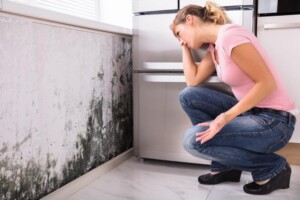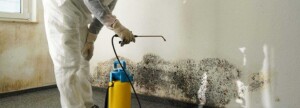Unwanted water infiltration and high levels of moisture in buildings can cause a variety of problems and management difficulties.

When moisture and dampness are not properly treated, mould can grow and spread across constructed environments, causing irreparable harm to assets and structures.
Mould’s negative impacts on health are becoming well known and recognised. However, the damage that mould may do to the structure of buildings is frequently not adequately addressed, leading to worse management over time.
All organic materials are prone to the formation of mould. Particularly at risk are common building materials made of, or containing, wood or wood fibres, paper, or cardboard.
Numerous paints, glues, and resins encourage the growth of mould, and carpets and insulation can collect a lot of water and dirt.
Therefore, even while water infiltration may happen quickly, it may take days or even weeks for the area to naturally dry out, during which time mould spores may start to spread and thrive.

In domestic houses, water damage and microbial growth are possible but frequently undetectable at first.
Long-term moisture effects that go unnoticed can result in the growth of microorganisms, the development of mould, and the deterioration of building components.
Failure or breaches to pipes, both supply and drainage, and from failure of drainage seals are typical sources of major water damage in household settings.
Other factors that contribute to water intrusion include poor building envelope care, inadequately designed stormwater and rainwater drainage systems, and even alterations to buildings that violate the engineering standards or original building design.
The cost of rectification for these effects can go from a few hundred dollars to tens of thousands. Insurance plans might not apply in some circumstances, such as when an accident results from poor upkeep. Insurance companies sometimes have microbiological contamination maximum payout amounts, which frequently do not cover the whole cost of corrective procedures.
An organisation such as Airsafe, should create any remedial scope separately from the cleanup contractor in order to determine the extent of the job.
How Can Airsafe Help?
The team of mould professionals at Airsafe is extremely skilled and knowledgeable, and they can help with the assessment of mould in residential, commercial, and industrial settings as well as provide assurance that treatment is done thoroughly and safely.
Airsafe is here to keep you safe with our comprehensive mould testing, inspections and assessment reports. When you need help with mould in Sydney, it’s best to get in touch with the experts on 1300 888 338.



